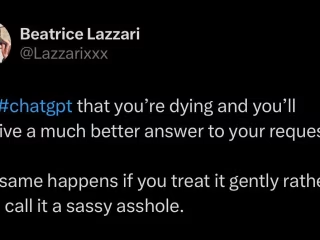Book Editing / Storytelling Analysis / Film Production
I have had work experience as a story editor at both an Italian film production company and an English literary agency, evaluating storytelling and the potential production of books, films, TV series, and documentaries.
Title: xxx
Author: xxx
Genre: Historical mistery/Crime
Material: Book
Goal: evaluating potential film and tv adaptation
Synopsis: xxx
Plot and characters: The most interesting theme of the book is the feminist one or, more generally, about women: not only is it current, but it is especially compelling because it is addressed in a non-Western context, which contributes to raising the stakes of the narration. Indeed, solving the mystery of the missing women is already complicated with the rudimentary technological and methodological means provided by the location and historical period (the advent of photography is very interesting). In this case, the difficulty is increased even more drastically by the fact that the families of the missing girls, in order not to lose honor and respect, are not always willing to cooperate. This means that the most effective resources for solving the case are Farook's intellect and Yusuf's network of contacts, making the story more engaging and original. The first part of the book is obviously a very important setting phase. The setting of the tone and characters, particularly the relationship between Farook and Yusuf, is well-written and captures the atmosphere well. However, I find the choice to reveal the murderer already in the prologue unconvincing. In my opinion, this device reduces the suspense because the audience just has to wait for the narrative to reach the point where the protagonist discovers the murderer's identity. It's a device that can be intriguing, but in this case, it's used too prematurely in the story, because the only mystery the audience must solve seems to be the "why," not the "who." One of the strengths of the mystery-thriller genre is the imminent danger, and I find that in the first part of the story, this is not emphasized. At least among the women, there should be a certain fear that pervades the city streets. Furthermore, perhaps, it could be more interesting if one of the main characters contributing to the investigation were actually a woman, who acts in the shadow of society but is ahead of her time. The relationship between Farook and Yusuf works well, the avant-garde and the traditionalist form an effective pair to highlight themes of backwardness and modernity or to trigger a growth in tension that could potentially slow down the investigation. However, this latter point, as far as the initial phase of the book is concerned, is not fully developed. It is unclear what the strategy and collaboration between the two are. I think it would have been more effective to enhance the dynamics of power between the two: Farook decides, but Yusuf can implement the plans. Alone, they cannot achieve results, but together they can. Moreover, it would be interesting to see how the two, because of these dynamics, carry forward the investigations on their own, independently discovering important information. Farook is the protagonist, and it is right that his goal in the story is to solve the mystery, but if that is really the only reason, empathy towards the character suffers negatively. Regarding the protagonist’s stakes, if Farook had an emotional wound or a parallel reason that brought him to Marrakech from Tangier or a reward that comes from solving the case, it would be much more engaging for the audience.
Interest for the market: Overall, the book is interesting, but when viewed through the lens of a potential film adaptation for the specifically English or Western market, it is not. There's some appeal in the fact that it's a semi-true crime set in a non-Western country, thus marked by an entirely new atmosphere. While this aspect is a strength for a book written by a British-Moroccan author, it is simultaneously a weakness for a cinema adaptation. The search for Moroccan co-producers to team up with English ones might prove challenging due to the budget and the appeal such a story might have. The absence of English or European characters could be an empathy problem for the Western audience. Transforming Farook into a Western detective investigating the mysterious killer of Marrakech is a possibility, but it remains implausible both historically and narratively; moreover, it would distort the story by creating difficult-to-resolve cultural contrasts. Thematically, there's nothing specifically European to highlight a cultural crossroads or anything strongly innovative that justifies international cooperation and the challenging search for resources to create an adaptation, and, above all, to actually succeed in climbing the box office charts. Therefore, I don't believe the film adaptation of a book of this nature could top the list of priorities for English cinema.
Auhor: Despite the weaknesses listed on a narrative and productive level, I find the book engaging and fascinating. The author's style is smooth and enjoyable to read. By combining various cultural stimuli, the author has identified fertile ground that could give rise to new mysteries for Farook and Yusuf to solve. It is, therefore, to be considered for future proposals.
Project evaluation: No
IP evaluation: Yes
Like this project
Posted Oct 23, 2024
I have had work experience as a story editor at both an Italian film production company and an English literary agency






